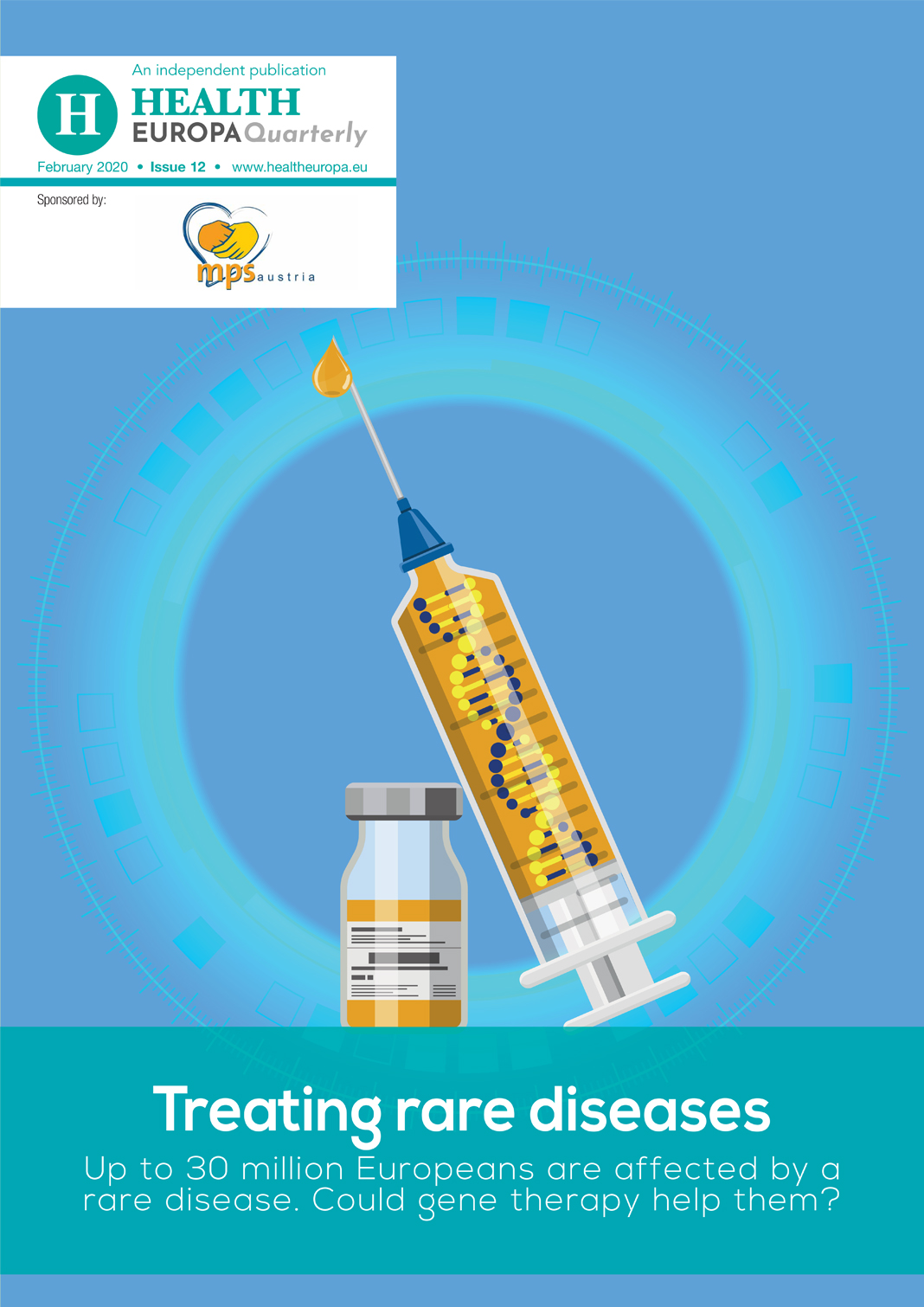Welcome to the 12th edition of Health Europa Quarterly, which takes as its key focus the rise of digital health solutions and the need to integrate emerging technologies into healthcare practice.
HEQ 12 opens with a spotlight on value-based healthcare, provided by EIT CEO Jan-Philipp Beck; followed by features on the research benefits of miniature space labs and the potential of space research to support developments in neurogenetics.
We then move on to a focus on digitalisation in healthcare, with contributions from NHS Digital Academy CEO Rachel Dunscombe, EIT Health CEO Jan-Philipp Beck and Christoph Brochhausen, Vice Director of the Institute of Pathology at the University of Regensburg.
With rates of colorectal and pancreatic cancer on the rise, Professor Matthias Löhr of United European Gastroenterology explains why we should begin prioritising pancreatic cancer as a concern. Gerry McCauley, CEO at biotech startup OmniSpirant Ltd, showcases an innovative new solution for the treatment and alleviation of chronic obstructive pulmonary disease (COPD).
We speak to Fellows at the European Stroke Organisation about strategy in the prevention and treatment of stroke, as well as the importance of gender responsivity in stroke care; and World Stroke Organization President Professor Michael Brainin tells us about innovation and digitalisation for the future of stroke treatment. Anne Marie Böhme and Julia Katrin Rohde of German digital health firm Preventicus showcase Preventicus’ pioneering new app, certified as a Class IIa medical device, which can prevent and detect incidences of stroke.
Andrew Obenshain, Head of Europe at US biotechnology firm bluebird bio, details the potential of gene therapy to treat rare diseases. Male urethral stricture can cause chronic pain, diminished quality of life and internal damage. MukoCell, a tissue-engineered mucosa, has shown significant therapeutic efficacy in the plastic reconstruction of the urethra: MukoCell GmbH CEO Soeren Liebig tells us more.
Following an exploration by European Federation of Pharmaceutical Industries and Associations Director General Nathalie Moll of the shared goals and responsibilities of Europe’s healthcare ecosystem, Nick Macready of Public Health England (PHE) showcases the commercial opportunities PHE offers; while Johan van Daele, CEO of BioNotus, details how BioNotus’s pioneering approach to combining bioanalysis with pharmacometrics can deliver actionable insights for clinical research.
British Society for Immunology Chief Executive Doug Brown tells us about the society’s key goals and the importance of vaccines; and Dr Frank Follmann, Director of the Department of Infectious Disease Immunology at Statens Serum Institut’s Center for Vaccine Research, highlights groundbreaking new research which could result in a fully functional chlamydia vaccine.
We close this edition with a focus on medical ethics. In 2019 Health Europa was contacted by advocates for Falun Gong practitioners who had been imprisoned in Chinese labour camps. Along with campaigning doctors Professor Wendy Rogers and Professor Jacob Lavee, the Falun Gong survivors told us about forced live organ harvesting in China: an appalling and inhumane practice which continues to this day. Finally, Conor Kavanagh of the UK’s Immigration Advice Service explores the ways in which the global refugee crisis is weighted against those with physical and mental disabilities.
Rosemary Lobley
Editor
Health Europa Quarterly



